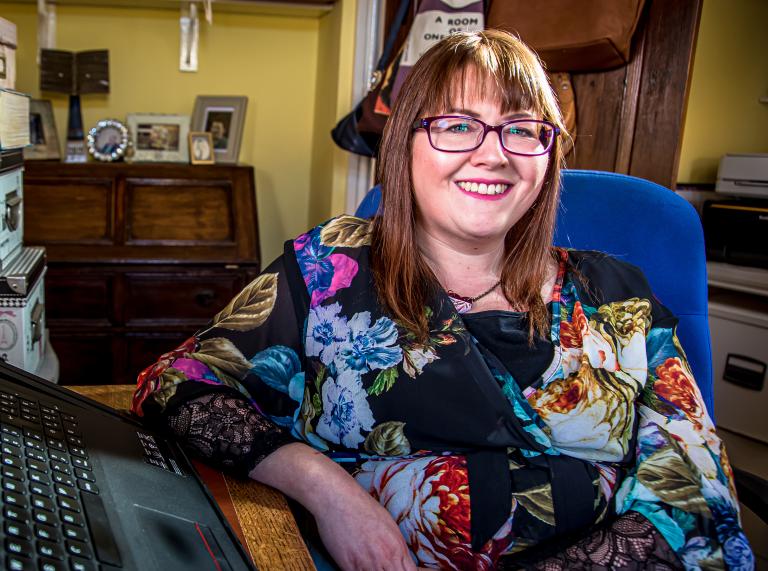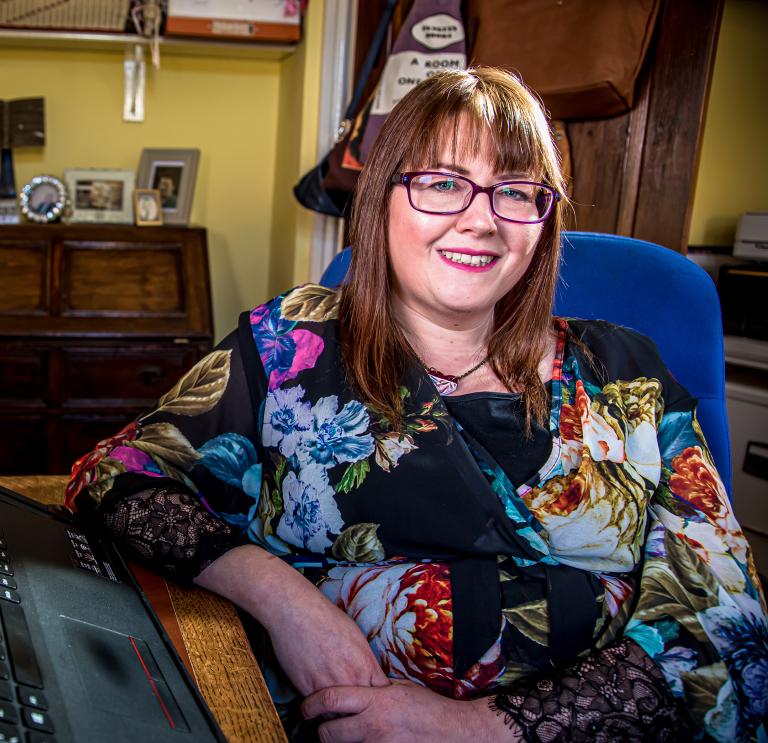My name’s Rebecca Roberts and I'm best known as a novelist, although I'm also a part-time translator, as well as conducting non-religious ceremonies as a freelancer. I've lived all my life in Prestatyn in Denbighshire and earned a degree in English and creative writing at Bangor University.
My aim has always been to become an author, ever since I was in about year six in primary school. I've had different careers – teaching and Welsh language development – but I always knew I was going to write books. In fact, I don’t feel particularly qualified to do anything other than write books.
I was driving home one day, thinking over ideas, and I came across a character that I really liked and put her in a situation that I thought was interesting. I started writing it in English, but it didn’t sound great. Then, I thought that, as the character I was writing was a Welsh speaker, I should try writing it in Welsh. That’s when I knew I had something. I wrote a first draft of the book, sent it off to Literature Wales and applied for their bursary and mentorship scheme. I was lucky enough to be offered mentorship with well-known writer Manon Steffan Ros. We worked together on polishing it up, and I sent it off to Gwasg Carreg Gwalch in Llanrwst, and they said, ‘Yes, please, we'd like to publish it.’ That’s how Mudferwi, my first novel, came about.
I’m from a non-Welsh-speaking family and learned Welsh in school. I'm under no illusions that my Welsh isn't perfect, but I’ve been lucky to find mentors and editors willing to talk me through the little mistakes I was making and correct me. One of the reasons I started writing was to improve, and having an extended project like a novel gave me something to focus on. Sometimes a character's voice works equally well in English and Welsh, and I feel incredibly privileged to have the advantage of bilingualism. I get to choose which language I want to work in, depending on the story. We need to encourage more people to have the confidence to try writing in Welsh.


In Wales, we've got small publishers that champion Welsh writers and want to tell stories about Welsh life and Welsh society. I'm very proud to be a Welsh writer, and writers in Wales are so supportive of one another. There's not a lot of jealousy or envy; we work together and promote each other's work. We're amplifying it and Wales in the literary world.
I really appreciate the support from Creative Wales and the Books Council of Wales, too. They've given grants for my books, and the marketing side of it is beneficial as well. Things like getting invitations to be part of podcasts to get your work out there and talk about my books and say, ‘Yes, I'm here. I'm a writer.’ There are so many amazing schemes for mentorship that demystify the publishing industry and offer support for young people, authors of colour, and those on low incomes.
I’m incredibly proud of my young-adult novel #helynt, not just because it won the Tir na n-Og Award, but because of the feedback from people who’ve read it. One young man said after reading it, ‘I know that no matter what I go through, I don't have to go through it alone,’ and that meant the world to me. That's the kind of message I want to send out to the world.
What has Rebecca Roberts been up to lately?
- In 2025, Rebecca announced her book Helynt will become an official GCSE Welsh set text.
- She also released her latest book, Diwedd y Gân, a powerful Welsh-language novel published by Gwasg Carreg Gwalch.
To discover more of Rebecca's work, visit her website.
